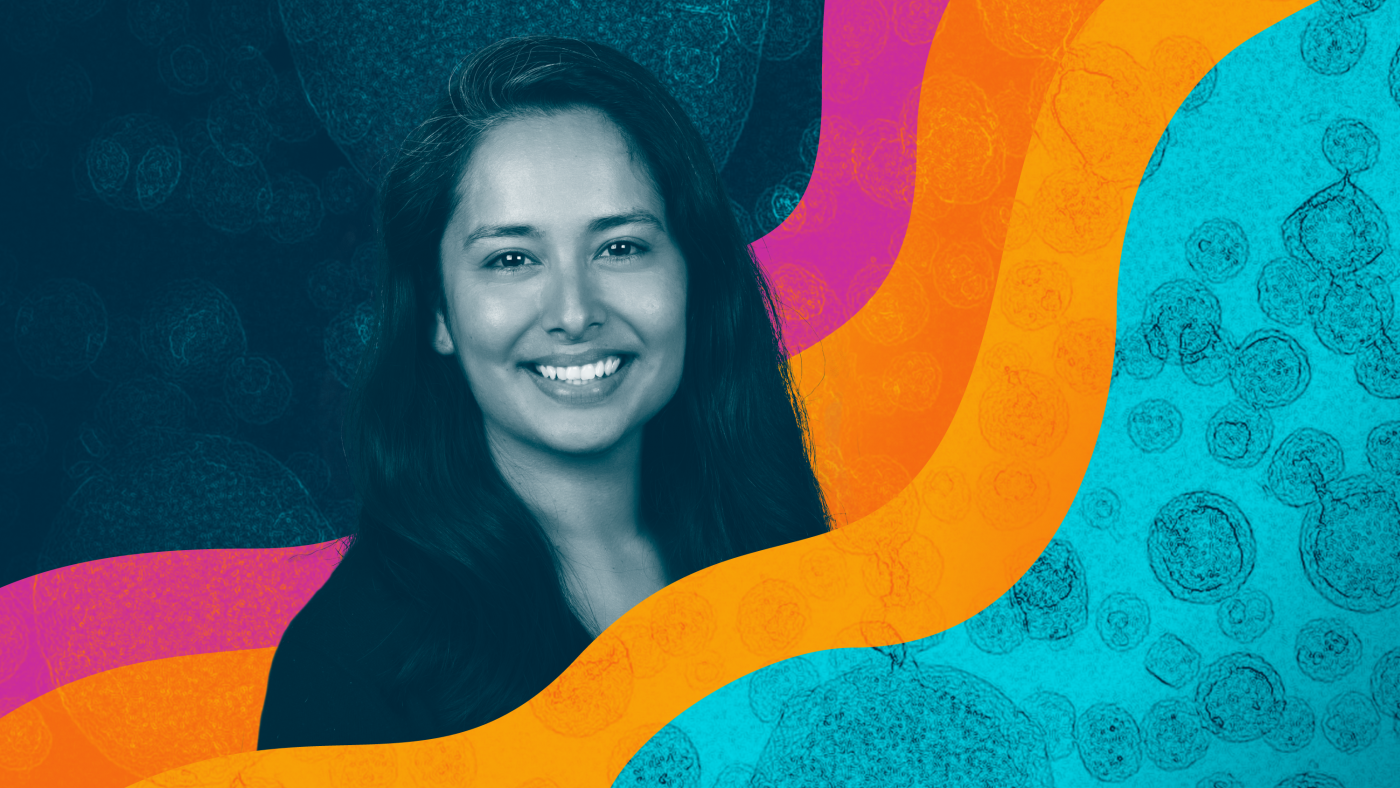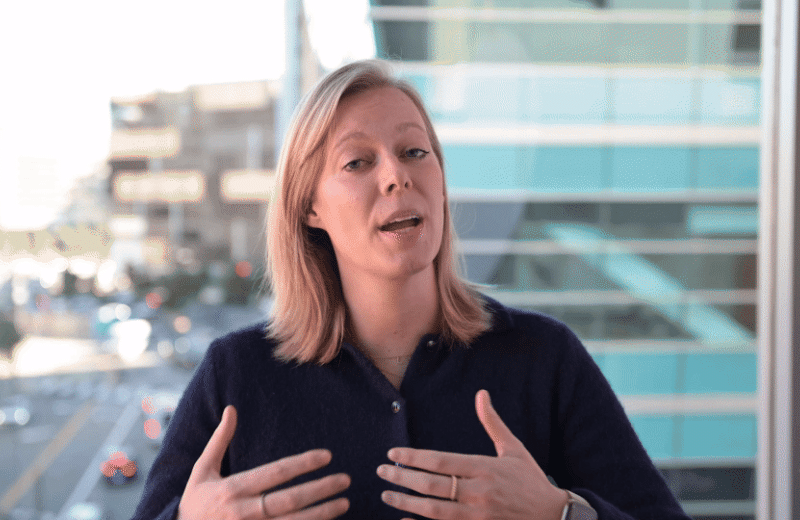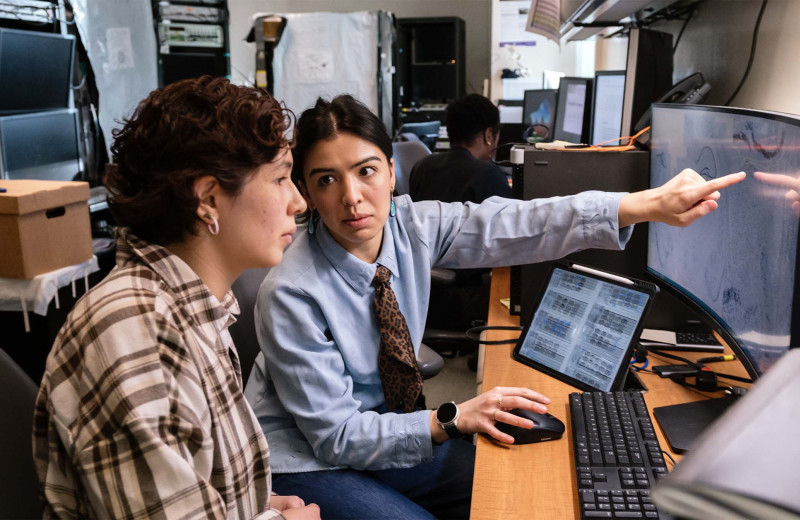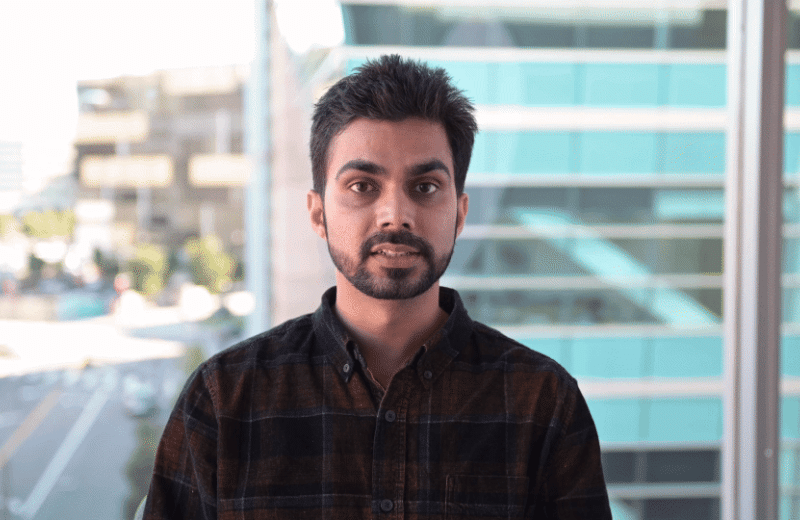Gladstone NOW: The Campaign Join Us on the Journey✕

Millie Copara, PhD (she/her), is a senior scientific recruiter at Recruitomics Consulting and a fervent advocate for equity and inclusion, especially in STEM.
This year, as a way to celebrate Pride Month, Gladstone is featuring the panelists from Out in Science with a series of articles that asks them five—or more—questions.
First up is Millie Copara, PhD (she/her), a senior scientific recruiter at Recruitomics Consulting, where she helps biotech companies hire scientists. Copara is a fervent advocate for equity and inclusion, especially in STEM. She is a queer Latina immigrant from Peru who grew up undocumented and low-income—and hopes that she can pave the way for others with similar experiences.
What is the current focus of your work?
My work revolves around hiring scientific talent for biotech companies in the Boston area. We work with smaller companies who don’t have in-house talent acquisition quite yet and we help them find the scientific talent they need to grow their young companies. We hope to be able to help them until they don’t need us anymore!
The unique aspect of our consulting firm is that all of our scientific recruiters have PhDs. This allows us to connect and understand more deeply what the scientific profile is we’re targeting for each role. For the most part, this entails sourcing candidates and managing the hiring process from the very beginning of drafting a job description to the final offer and placement of the new employee. I absolutely love the puzzle that is finding the right person to fill the hiring manager’s needs and connecting highly talented scientists with wonderful new opportunities!
I also enjoy doing outreach to students and early-career researchers who are interested in exploring careers in science and the biotech industry. Reach out if you’d like to learn more!
Why is it important to you to be out in science?
It’s important because being a scientist is only part of who I am and I want to intersect my whole self with my work, with the research I’ve done, and with the impact I have. Hiding or deprioritizing any one identity significantly reduces the energy I have to dedicate to my work and to my colleagues.
Additionally, representation is massively important. I wish I had seen much more representation of queer and trans scientists in my field when I was still a researcher. I co-founded a seminar series (Seminar Outreach for Minority Advocacy, or SOMA) in my graduate department at UC Davis just to invite scientists whose stories were not being shared as prominently.
This was the first time I witnessed an openly trans scientist give a seminar in our department. Like all our speakers in the series, Joni Wallis was given the opportunity to share her career journey alongside her research presentation. Just like the first time I read Ben Barres’s article “Does Gender Matter?”, I resonated with so much of what Joni was saying. That was a very powerful feeling and I want more scientists to feel seen and understood in all of the identities they hold.
How can organizations create a more inclusive and supportive environment to LGBTQ+ scientists?
Sharing and encouraging others to include their gender pronouns is a great start. Normalize this practice and remove the onus from trans/nonbinary folks to correct or comfort those who mistakenly or actively misgender them. The world can be very harsh to those who do not conform to gender norms and facilitating this aspect of respect can provide huge leaps of support.
Otherwise, make sure your policies are inclusive in a myriad of ways—provide gender-neutral bathrooms, put pronouns wherever you list names, encourage opportunities to learn more about LGBTQIA+ communities and history, emphasize intersectionality, collaborate with community queer/trans centers, and donate to their grassroots efforts to support their local community.
Additionally, creating spaces where queer and trans scientists can gather, build community, support each other, and navigate these spaces together can make a world of difference. I wouldn’t have survived graduate school and academia without my queer community. And to this day, I turn to this community on a daily basis.
What advice do you have for LBGTQ+ scientists who are early in their career?
YOU are enough. You will always be enough. Enjoy the science, yes, but don’t let the successes or failures within science define your value. You are worthy and deserve unconditional joy and care and acceptance as a scientist and every other identity you hold.
Oh, and find your community and/or mentorship. This will be a lifeline for your journey.
Also, network, network, network. I know that sounds intimidating, but start small and just slowly keep at it. Reframe everyone you know as people who have jobs and they know others with jobs! Then just get in the habit of asking people more about their work and their research. Also, when evaluating opportunities, learn to ask questions to gauge culture, environment, and management styles. This will be very important, especially if you end up being “the only [blank] in the lab/class/workplace.”
If you want more advice or to build your queer network, connect with me on LinkedIn. I’d be happy to share my email and keep in touch!
Have you had a mentor who has been particularly impactful on your career?
I’ve had a couple mentors who have made an impact but they didn’t identify as queer/trans. They were impactful because they listened, they saw me, they worked to connect me with opportunities, and tried their best to help me succeed, especially when I was faltering. Those were really big pillars of support. Thank you, Steve Lee! Steve was the reason I found my job after finishing graduate school and he was the reason I ventured into diversity work, student support, and career development.
But as I mentioned before, my queer mentorship came from my community of peers. I spent a large part of my life without queer community, either closeted or too intimidated by the idea of queer social groups and the expectations of having to be “queer enough” to participate. When I finally did find my group in grad school—and they know who they are—life felt just so much more filled with possibility and energy even amidst many uphill battles. I also went on to expand this community as a staff member, especially as I started to delve more into DEI service efforts. And most of all, I learned that “being queer enough” just meant living your life as true to yourself as possible.
Bonus Question: What was your first job?
I was a waitress as a teenager at my family’s Peruvian restaurant, El Misti, where my mom was the head chef and my dad was the manager and unofficial “taste-tester.” I worked there right up until I left for college at UC Davis and I absolutely loved it! As anyone who knows me knows, I can rant and rave about Peruvian food endlessly so this job was a fun one for me. It was hard for sure, but my extroversion kept me going so very often. Tip your wait staff, y’all!
Meet Gladstone: Alisa Dietl
Meet Gladstone: Alisa Dietl
Alisa Dietl brings her international training and clinical perspective to Gladstone, where she works to engineer more effective cancer immunotherapies for solid tumors.
Graduate Students and Postdocs Profile Cancer Pelka LabVoices of Outstanding Mentorship
Voices of Outstanding Mentorship
Three recipients of Gladstone’s Outstanding Mentoring Award share their personal approaches to mentorship and reflect how this passion has shaped their own growth as leaders.
Profile Roan Lab Graduate Students and PostdocsMeet Gladstone: Shyam Jinagal
Meet Gladstone: Shyam Jinagal
Shyam Jinagal explores how genetics, aging, and regeneration shape the heart—and how those insights could one day restore heart function after injury.
Graduate Students and Postdocs Profile Cardiovascular Disease Srivastava Lab



